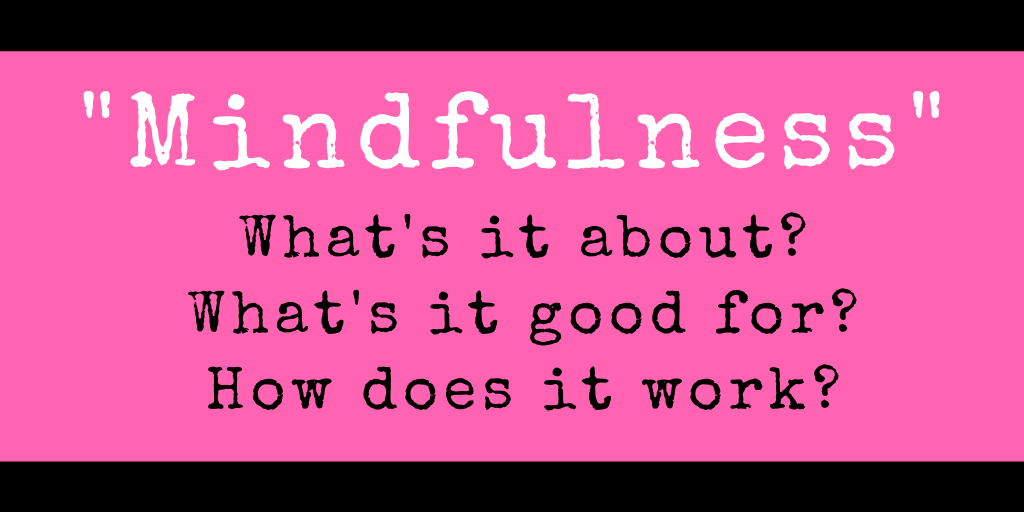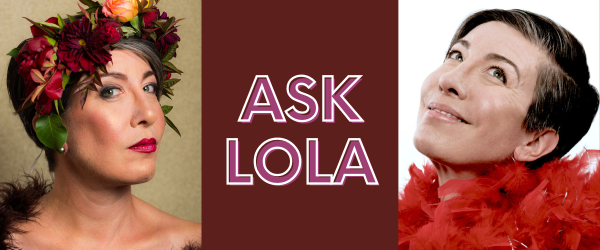“Mindfulness” is a term that gets tossed around a lot these days. You may be wondering what all the fuss is about and how mindfulness might be useful in the cam space.
First let me lay out the standard case: There’s a growing body of scientific evidence that — in a modern world filled with all kinds of stimuli, arousal and upsetting news — practicing mindfulness increases our resilience. Rather than reacting with aversion and avoidance, mindfulness can help us disconnect from free-form worry and avoid anxiety episodes before they start.
What is mindfulness and why should you care?
Learning to just “sit with what is,” an activity deeply connected to mindfulness, can help us to:
- Fully engage in the moment, rather than ruminating over the past or fearing the future.
- Deal better with negative events, and take more pleasure in good things.
- Connect more deeply with others.
- Reduce stress and its physiological toll, including high blood pressure, stomach upset, insomnia, hypertension, muscle strain, headaches, etc.
- Alleviate some of the distress accompanying mental illness, including depression, OCD, PTSD, substance abuse, and anxiety disorders.
All this makes mindfulness sound kind of magical, but don’t be misled: It’s not. What mindfulness does serve as, however, is a powerful antidote to our desire to check out by staring at screens, engage in black-and-white thinking, spin out stories and otherwise escape mentally.
All this would be useful enough for anyone. For sex workers, mindfulness is especially useful because it helps us establish: This here is what’s going on with me. That over there is what’s going on with you.
Here’s why this is so crucial to our jobs: Sexual interactions blur distinctions. Sex is one of the most potent ways we open up to one another, as well as understand our sense of self. When sexually engaged, we’re figuratively (and often literally) exposed. As erotic creatures, we’re keenly attuned to our affect on other people.
Sex work is serious emotional labor. It requires us to tune in, react to and elicit responses in others. Money raises the stakes. No wonder sex workers are so prone to burnout and exhaustion — we need serious skills to process what we experience every day on the job. Mindfulness helps us not get so caught up in what other people say and do, while remaining alert to what we are authentically feeling.
Mindfulness practice is a bit like your cardio routine. I’m not necessarily recommending you do it at work, unless you have a safe, appropriate time to do so. However, with time, you might find these techniques incorporating naturally into your daily life.
Mindfulness Exercise
Note: This method is adapted from helpguide.org/Harvard/benefits-of-mindfulness.htm, and I’ve read aloud a modified version you can listen to for free at Soundcloud.
Mindfulness is simply a form of meditation. The goal is to achieve a state of alert, focused relaxation by paying attention to our thoughts, emotions and sensations without judgment. There is no “right” amount of time to practice. Ten minutes a day is a good place to start, but a few minutes throughout the day is great, too.
Here are some steps to consider:
1. If you’re sitting, position yourself comfortably. If you’re waiting in line at a checkout stand, take a moment to orient your body. Notice where your weight rests. Connect with your shoulders, hips, knees, feet.
2. Focus on an aspect of your breathing, such as the sensations of air flowing into your nostrils and out of your mouth, or your belly rising and falling. If it’s helpful, quietly say to yourself as it’s happening: “Inhale, exhale. Inhale, exhale.”
3. Once you’ve narrowed your concentration in this way, begin to widen your focus. Become aware of the sounds and sensations around you, and your ideas as they pass through your mind.
4. Meet each thought or sensation without judgment—this is key. Whatever you become aware of, greet it like an unremarkable stranger on the street: Notice, then walk on by. The goal is to not get sucked in stories about goodness, badness, or in-betweenness. We want to be aware of our bodies, minds, and everything around us without reacting.
5. If your mind starts to wander into planning, daydreaming, or criticism, notice where it’s gone, then gently bring yourself back to sensations in the present, returning to your breath. After a few breaths, expand your awareness outward again to your surroundings.
Cultivating our observer minds by inserting a little bit of distance between the world and our reactions is a bit like building up our mental and emotional immune systems. Detachment makes it easier to welcome whatever comes our way, without getting worked up or roped into drama.
Above all, mindfulness is the practice of loving and accepting yourself, regardless of what you’re feeling, thinking, or experiencing, and who could use a little more self-love?
Until next time, be sweet to yourself.
Lola D.

—
Lola Davina is a longtime veteran of the sex industry and author of Thriving in Sex Work: Heartfelt Advice for Staying Sane in the Sex Industry, a self-help book for sex workers available at Amazon, Barnes & Noble, iTunes and wherever else ebooks are sold. Get the audiobook version here. Contact Davina at Lola.Davina@ynotcam.com and visit her on Twitter at @Lola_Davina, as well as on Facebook.
Image of Lola Davina courtesy Pat Mazzera.










[…] thinking. Potential day-to-day challenges are experiencing intrusive thoughts and taboo obsessions. Mindfulness and acceptance may help filter intrusive sexual […]